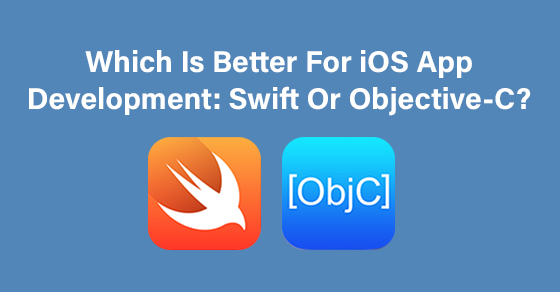"Developing A Payment App? Here Are Some Of The Key Points You Should Consider"
"The "Good" Impacts Progressive Web Apps Will Have On Your Business"

Android and iOS are two of the widely popular and most used mobile operating systems until today. In this write-up, we'll focus on iOS mobile application development mainly taking into consideration the two main programming languages used to develop iOS apps - Objective-C and Swift. Here, we'll do a comparative study on both the programming languages.
Let's first look briefly into what is Objective-C. Objective C is a class-based, object-oriented and general-purpose programming language designed by Tom Love and Brad Cox. This was the main programming language that was used by Apple for their iOS and macOS operating systems, and also for Cocoa Touch and Cocoa (their respective Application Programming Interfaces (APIs)) until Swift was introduced.
The programming language Swift was designed and developed by Apple Inc. for its macOS, iOS, tvOS, z/OS, watchOS and Linux with the help of Chris Lattner, John McCall, Doug Gregor, Joe Groff and Ted Kremenek. Like Objective-C, this programming language is also object-oriented, general-purpose, multi-paradigm and block structure. Let us now compare the two programming languages: Swift vs. Objective-C.
As you can see, all the points we discussed above show that Swift is definitely the best choice for programmers for iOS app development. But that does not mean that Swift comes with only advantages over Objective-C. Yes, the programming language has its own disadvantages, it has limited compatibility. This means that programmers have to go through heavy program rewrite to make the app function perfectly with new versions.
Now, in conclusion of mobile app development , Swift definitely has many features that surpass Objective-C. But ultimately, when it comes to choosing one among the two programming languages, the final decision will depend on the size of the application, the project's deadline, team strength and the technical awareness of the team as well.